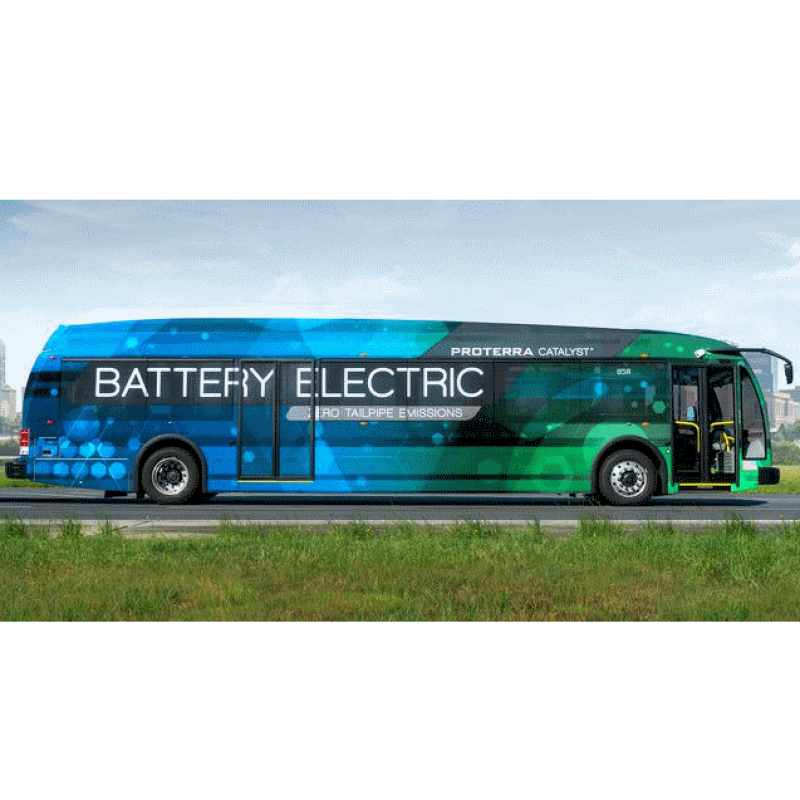China made solar panels cheap. Now it’s doing the same for electric buses.

It is now more or less taken for granted that solar panels are getting cheaper and cheaper. But that didn’t just happen — solar PV did not jump onto that trajectory on its own. After all, solar panels have been around for decades, but they didn’t really start plunging down the cost curve until the mid- to late-2000s.
Germany deserves some credit for creating demand with its aggressive feed-in tariffs. President Barack Obama and the Democrats deserve some credit for creating demand with the 2009 stimulus bill. But the lion’s share of credit goes to China, which, rather than fiddling with tax breaks and credits and “market mechanisms,” invested a boatload of money into production subsidies, scaling the industry up by brute force.
China’s wild binge of solar manufacturing drove down the costs of panels, both by oversupplying the market and by hastening economies of scale. In effect, the country voluntarily took on the costs of pushing solar panels onto the “S-curve” of rapid growth, a strategy that will greatly benefit the Chinese — and the rest of humanity.
Now there’s evidence that China is in the midst of doing the same thing for another key clean-energy product: electric buses.

Extract from the Original article by David Roberts , in Vox .




Please:
- READ the Original article ,
- Reply with pertinence.
Thank you
As usual, China thinking ahead...
Remember the late 50's when electric trolleys disappeared from America as a combination of GM buying some trolley companies to just shut them down ( as competition )and promote car sales,
and the fact that buses manufactured by the big 3 and their subsidiaries would not be tied to the rails and overhead wires.
Dollar for dollar a trolley was cheaper to buy but the rails and overhead wiring were too expensive compared to diesel operated rubber tired buses that could go anywhere.
If these fully electric / solar assisted buses are affordable, "more power to them". It seems to be the future and we all benefit.
I remember the the solid rail ride of the old PRR & PSIC trolleys; the ratty old cars were eventually replaced by gleaming new SEPTA buses which rolled and swayed like a drunk was driving them.
And pollution and odor - geesh - the new buses were terrible - such was the price of supposed technological progress.
We maybe coulda shoulda asked ourselves whether that was really progress.
In any case, between electric motors and autonomous driving... There's a lot happening...
GM was out to get sreetcars and electric interurban railroads
When I was young my town still had streets with trolley tracks just a few blocks from my house. I don't know exactly when the system was shut down but it must have been in the 1950s.
I remember electric buses... but not battery-driven. They had a "trolley pole" that went up in the air draw current from overhead wires. They were great: quiet and no noxious exhaust. They were great... when they worked, that is. That trolley pole was forever getting loose from the overhead cable...
Buses are pretty much an ideal application for battery electric - they have tons of chassis space for batteries, the weight of the batteries lowers the center of mass and makes the bus more stable, they run predefined routes and return (or stop) at hubs where quick battery swaps could be performed, the percentage of recovered kinetic energy from stopping is higher, the performance in mixed traffic is much better, etc.
On a side note I can't imagine living in or near any industrialized part of China today give their air pollution problem. Cars and trucks are just one aspect but I suspect coal burning for electricity generation is the bigger problem. So merely adding electric buses to the mix doesn't really change that but the shift to solar electric will help over time.
Yes. All the European manufacturers have battery electric projects.
Yes. OTOH, China is pumping enormous sums of money into renewables.
I had the pleasure of working for a Japanese company during the eighties. I can assure for the most part, the region is looking twenty years down the road as they do not dwell in the now, but in forward thought.
Perhaps this is a part of our difficulty as we seem to dwell in the latest quarterly report while lacking a five year or five month plan and still looking for the resurgence of coal.
It certainly seems like that...